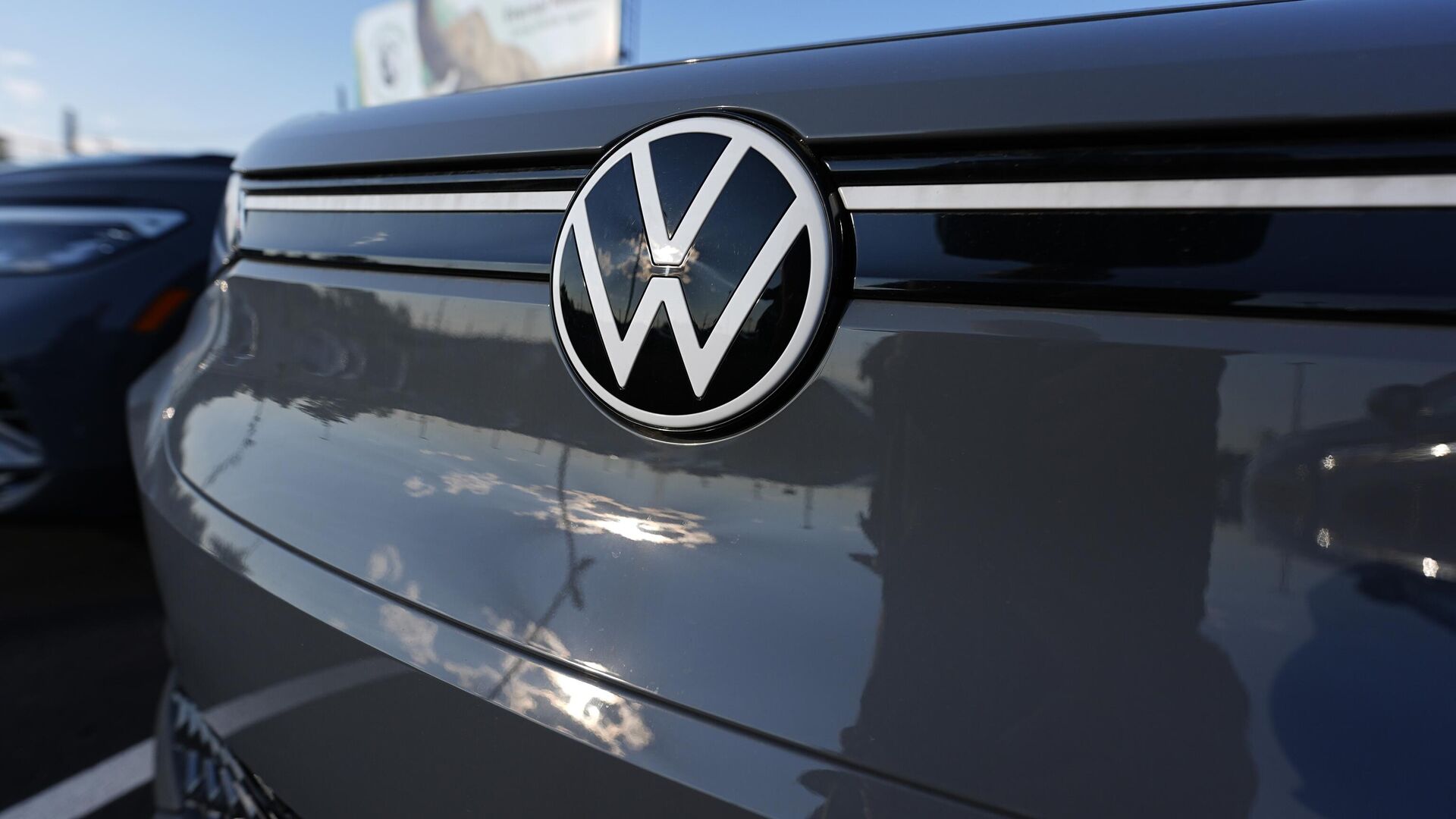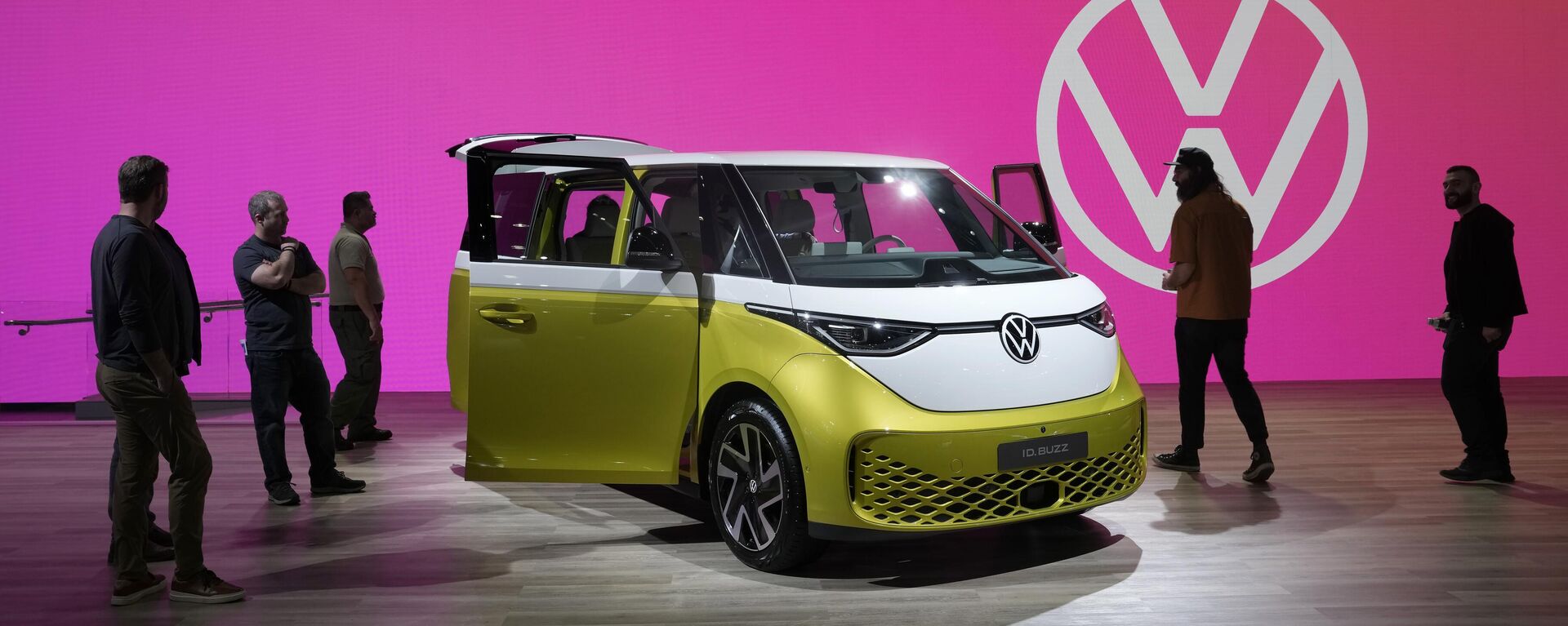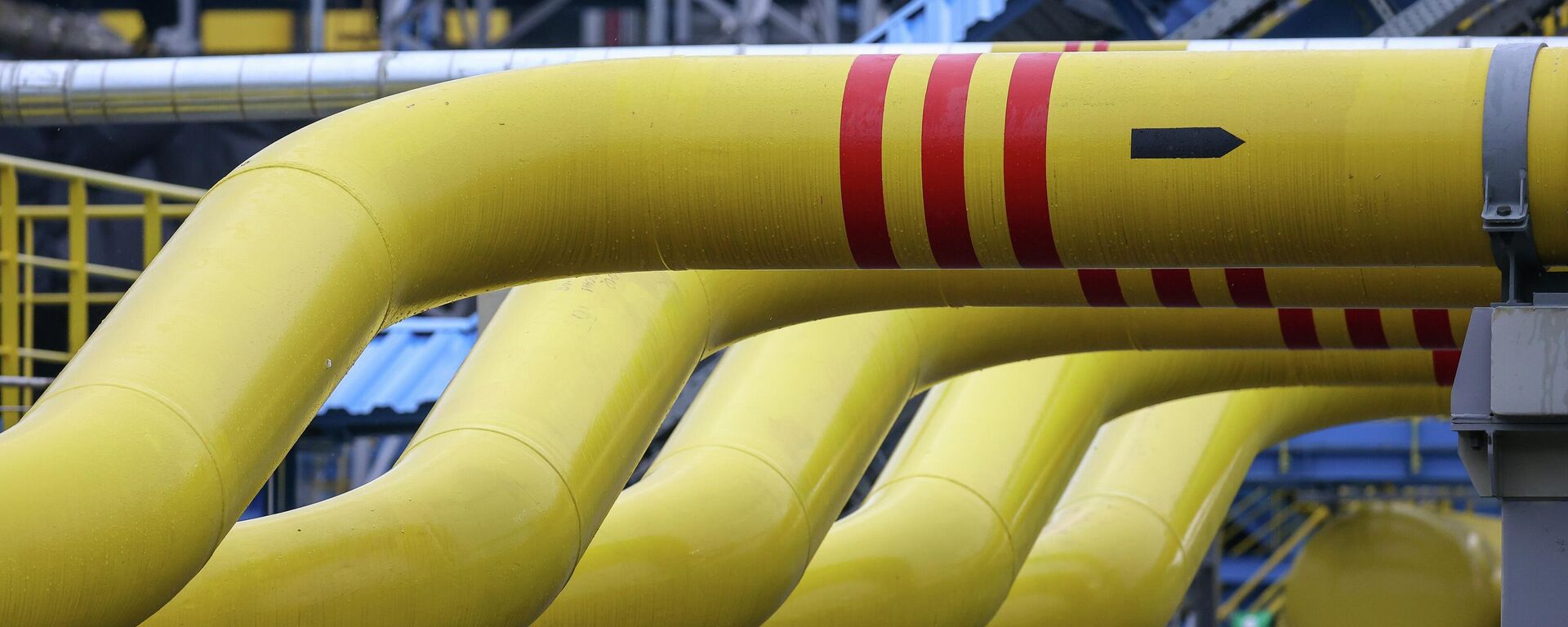‘Zombie’ Volkswagen Consequence of Years of Foolish German Government Policy

© AP Photo / David Zalubowski
Subscribe
German automotive giant Volkswagen has announced that it may have to take the historically unprecedented emergency measure of closing some of its plants amid the “serious situation” facing Europe’s car industry. The announcement is the result of years of foolhardy policy by Brussels and Berlin, Bundestag lawmaker Dirk Spaniel tells Sputnik.
Volkswagen is considering plant closures, the termination of employee protections agreed with unions, and other cost-cutting measures to try to steer the car-making behemoth back to fiscal health amid high energy prices, increasingly stiff competition from China, and European Union-level policy which has robbed the company and other German carmakers of their competitive advantage.
“The European automotive industry is in a very demanding and serious situation,” Volkswagen CEO Oliver Blume said earlier this week. “The economic environment became even tougher, and new competitors are entering the European market. Germany in particular as a manufacturing location is falling further behind in terms of competitiveness,” Blume noted.
The possibility of plant closures on its home soil in Germany – unprecedented for Volkswagen since its founding close to 90 years ago, comes amid an escalating trade spat between the European Union and China over Chinese electric vehicle imports, which have proven cheaper and more popular than their European counterparts.
“German and European industry will lose this battle with China for sure, and for me, it’s a completely silly idea to politically decide to commit suicide in the automotive industry and ‘repair’ it by banning Chinese vehicles from the European market,” Bundestag member Dirk Spaniel told Sputnik, commenting on the tough spot Volkswagen and the European car industry as a whole are now in.
“[If the] Chinese are not allowed to sell the cars in Germany or Europe, probably other products will be taxed in China. This will lead, especially for an exporter nation like Germany, to large drops of volumes of goods exported to China, which will affect the German market or German companies. For sure, this is a very bad way to wage a trade war with China,” Spaniel, a member of the Alternative for Germany parliamentary faction and the party’s spokesman for transport policy, said.
What’s Behind European Car Industry’s Decline?
“Building cars has been a long tradition in Germany,” Spaniel stressed, noting that the country’s competitive advantage has long revolved around its ability to achieve full cycle production, from raw materials and parts to assembly plants churning out vehicles powered by traditional internal combustion engines.
“Right now things are changing because of the European Union, which decided to ban internal combustion engines,” Spaniel said, pointing out that European carmakers’ efforts to quickly retool to build EVs has cost a great deal of money, increasing the price of vehicles which consumers aren’t particularly interested in.
“We have this huge amount of money which German automakers and suppliers invested over the last years in developing and putting electric vehicles on the market and they don’t make any money out of this,” the lawmaker said. “All of this cost a lot of money and makes it impossible for the German auto industry to invest in actual production, in cost reduction.”
On top of that is the lingering fallout of the 15-20% market drop caused by Covid, high energy prices, and the fiscal crunch currently facing the German government, which has meant a halt to subsidies for EVs, and higher prices. As Berlin eyes a bailout for Volkswagen, the massive company is looking more and more “like a zombie,” Spaniel emphasized.
“In my opinion, the building of electric cars is much easier for China than building competitive cars with combustion engines. The combustion engine was a German advantage, a European advantage, and it doesn’t require as many parts or as much skilled workers. It’s easier for China to build cheaper electric cars, even [in terms of] the energy cost, which is much cheaper in China,” Spaniel stressed.
In this environment, “European automakers have no choice if they want to go electric. They want to go 100% electric, but will have a disadvantage co China. That’s why they’re putting up the idea of having [tariffs] on Chinese cars,” which could “virtually ban” Chinese cars from the European market.
For Germans, the closure of the country’s car factories and large-scale layoffs would be “a disaster,” Spaniel stressed, “not only a disaster for the people there,” but for all Germans, signaling “that something big is going wrong in the German economy. And this is probably a true sign of how dysfunctional the government of Germany is operating,” the AfD lawmaker summed up.




